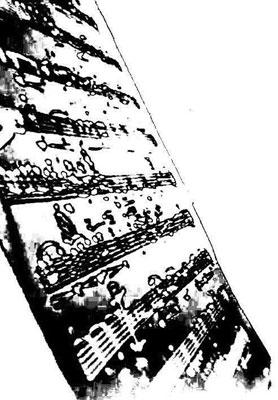All Nonfiction
- Bullying
- Books
- Academic
- Author Interviews
- Celebrity interviews
- College Articles
- College Essays
- Educator of the Year
- Heroes
- Interviews
- Memoir
- Personal Experience
- Sports
- Travel & Culture
All Opinions
- Bullying
- Current Events / Politics
- Discrimination
- Drugs / Alcohol / Smoking
- Entertainment / Celebrities
- Environment
- Love / Relationships
- Movies / Music / TV
- Pop Culture / Trends
- School / College
- Social Issues / Civics
- Spirituality / Religion
- Sports / Hobbies
All Hot Topics
- Bullying
- Community Service
- Environment
- Health
- Letters to the Editor
- Pride & Prejudice
- What Matters
- Back
Summer Guide
- Program Links
- Program Reviews
- Back
College Guide
- College Links
- College Reviews
- College Essays
- College Articles
- Back
Compare and Contrast of Music and Poetry
People all experience love, but everyone reacts to it differently. There are also different experiences and ways of love, there are spurned lovers, or, maybe, the person who loves many people but can never find the true one. If everyone reacts differently to love, then the same is true with authors expressing and writing about love. In both Jar of Heats, and The ways of love ( a song and poem, respectively) the authors write centrally around love, though they both share an experience of losing a loved one, the reaction and tone of both works are vastly different.
The song and poem reflect the opposite image of each other as far as tone. In Jar of Hearts, the indignation of a spurned lover who is asked for another chance resolves to not forgive is the setting for the tone. Hold that up against the soul full, bouncing, and forward moving tone in The Ways of Love. At line 3, “My soul can reach, when feeling out of sight” I believe the author is showing the vitality of his soul, and his ability to rebound. While, at line 3, in the song “I’m not your ghost anymore”, I believe this retort shows that there is bitterness, holding onto past experiences, which contrasts with a forward going feeling in the poem. These works are different in that one looks forward, and the other is written in a retrospective tone.
Shifting focus to he themes of both the poem and the song. Both works focus on the effects of love, however they approach the subject with different views. Anguish shows itself in lines 3 and 11; “Cus all that’s waiting is regret”, and “...tearing love apart”, respectively. Through the first verse, the author is showing that she would rather chose not having the chance of pain, rather than the chance of love. The following line conveys that part of her resistance to try love again, was that same person had ruined hers before. I see a stark contrast with the poem which is generally uplifting and it’s purpose is to examine and express the depths of his love. He shows this throughout the entire poem, but specifically in lines 2-3 “I love thee to the depth and breadth and height, My soul can reach....”. The contrast between the song and poem, is how they approach the feelings that surround love.
There were two common elements in the works that were woven together, the use of meter showed a similar experience. Both the poem and the song express that the subject has lost a previous love, and they both use meter in the verse that they show this. In the song, you can see that in lines 4-5 “ Lost the love, I loved the most”. I believe that this quote is straight forward. There was a person in the subject’s life who was their favorite love, and they had previous loves, but this one still remained the favorite. So, the loss of this love was as bitter as the love was special. In the poem, the author looks at the loss of his love different, perhaps by saying in line 11 “I love thee with the love I seemed to lose” he is showing that he had a deep love before, that he though he would never find the likes of again, but did. Both the song and poem discuss losing their “main love” and use meter in the verses that concern lost lovers.
Although “Jar of Hearts” and “The Ways of Love” are vastly different in their tone, they are both central to the same theme, and share a common poetry element. The contrast between the two tones, is almost a literal black and white difference. Yes, the central theme of both works is the effects of love, however (once again) the subject is approached differently, with “The Ways of Love” taking the part of the optimists, and “Jar of Hearst” pulling for the pessimistic side. Finally, there is the last element that they truly share; the use of meter to express the feelings of losing a love.

Similar Articles
JOIN THE DISCUSSION
This article has 0 comments.
